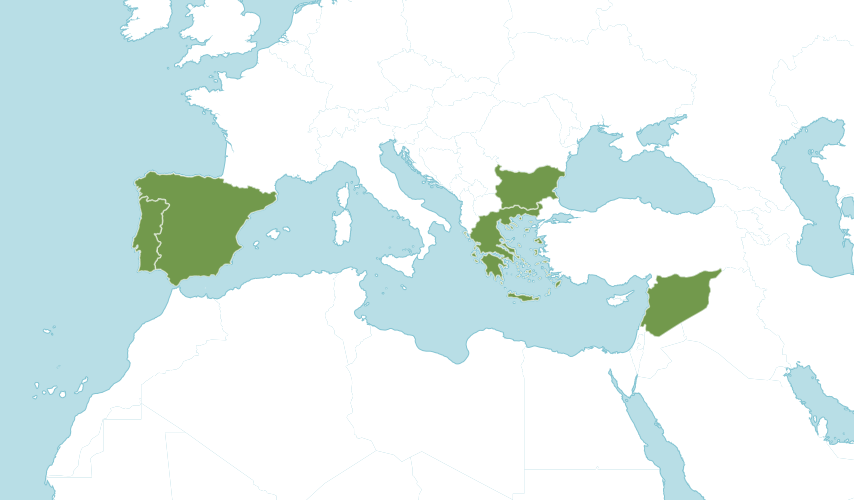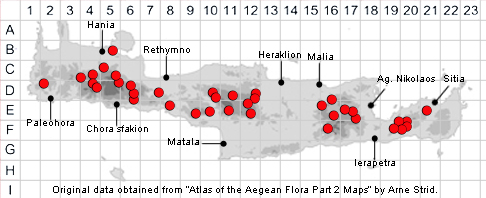SPECIES DESCRIPTION
SEDUM AMPLEXICAULE subsp. TENUIFOLIUM
Family and Genus:- See- CRASSULACEAE
Common Names:- None
Homotypic Synonyms:- Petrosedum tenuifolium, Sedum amplexicaule subsp.
tenuifolium, Sedum tenuifolium, Sempervivum tenuifolium.
Meaning:- Sedum (L) A name used by the Roman naturalist and philosopher
Pliny, reference to the plants habit of ''sitting'' on rocks etc.
Amplexicaule (Gr) Embracing the stem (the base of the leaf).
Tenuifolium (L) Slender leaved, with narrow leaves.
General description:- Slender perennial with ascending non-flowering shoots.
Stems:-
1) Flowering stems, 7-20 cm, erect; leaves less crowded and with a smaller spur.
Leaves:-
1) Grey-green, erect, imbricate, terete, glaucous leaves, tapered to a long, filiform
apex, and expanded at the base into a broad, amplexicaul, 3-lobed spur.
2) In midsummer those on the lower part of the shoot withered; those near the apex
persistent as a compact, summer-dormant bud which unfolds and roots in
autumn.
Flowers:-
1) 5- to 8(-12)-merous, rather few, subsessile, in lax, unilateral bracteate cymes
drooping in bud.
2) Petals, 6-8 mm, yellow with red mid-vein.
3) Stamens, 10-16(-24).
Fruit:-
1) Follicles, yellow, erect.
Key features:-
1) Flowers, 6- to 9-merous, few, in lax, unilateral cymes.
2) Non-flowering shoots, in midsummer leafless except for a terminal summer-
dormant bud.
3) Leaves, of the non-flowering shoots amplexicaul, with a broad, 3-lobed, hyaline
spur,
4) Petals, 6-8 mm.
Habitat:- Rocky outcrops in meadows and open woodland, road embankments,
usually on limestone. (0-)400-1600(-2100) m.
Distribution:- Widespread and common throughout the Mediterranean. Widespread
and common on Crete, but mainly around the massifs.
Flowering time:- May-July.
Photos by:- Steve Lenton
Native to:
Bulgaria, East Aegean Is., Greece, Kriti, Lebanon-Syria, Portugal, Spain
Bulgaria, East Aegean Is., Greece, Kriti, Lebanon-Syria, Portugal, Spain

GLOBAL DISTRIBUTION
